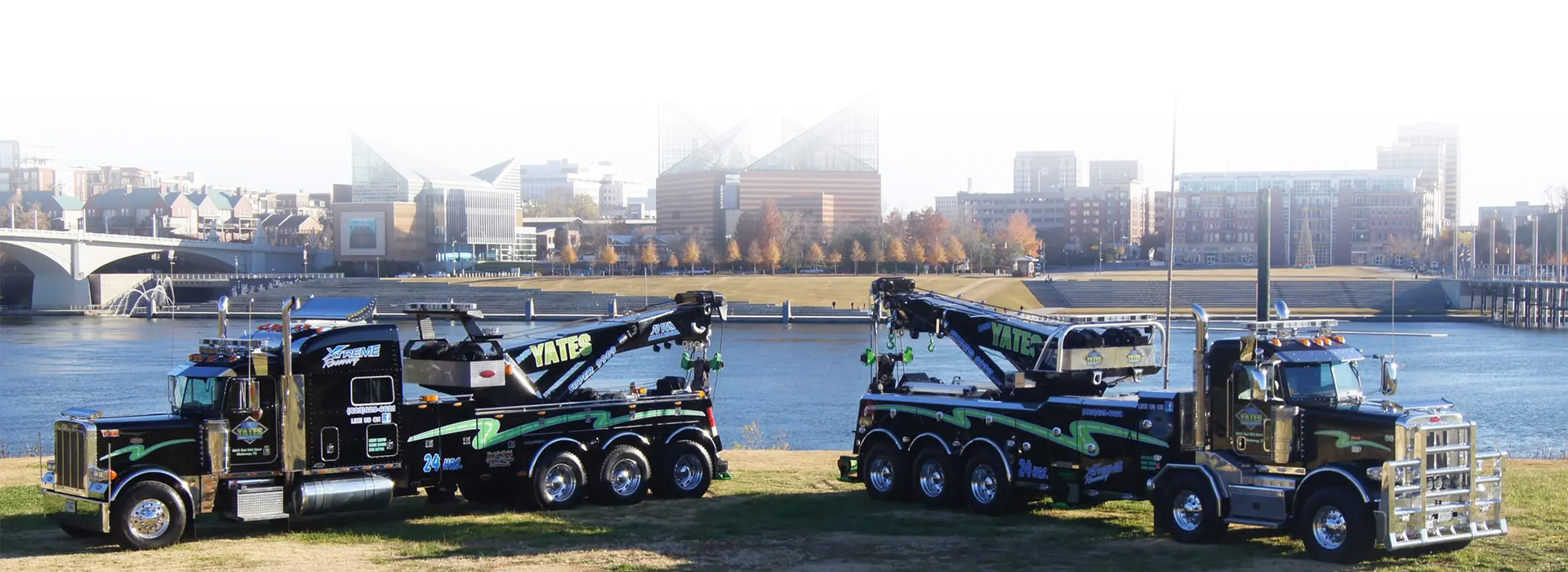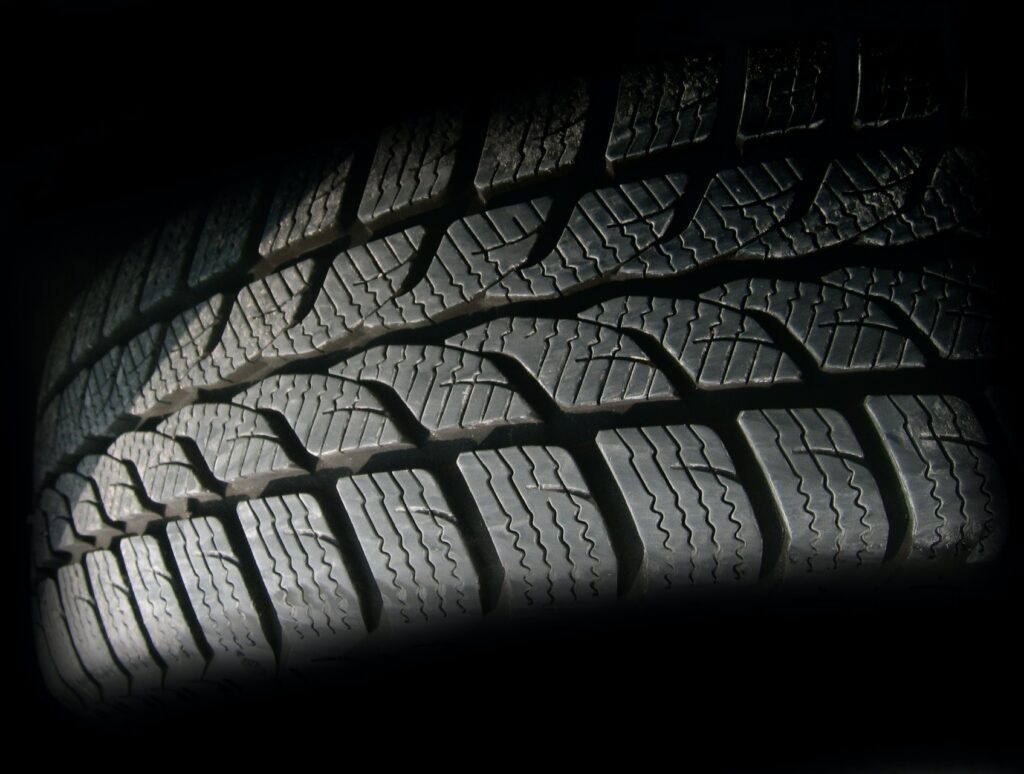The goal of tire maintenance is to prevent problems from occurring. Of course, you can’t catch everything, so it’s essential to prepare for the worst. That’s why you need a reliable, local towing service nearby. Here are a few ways to ensure the tires on your car stay on the road, avoid blowouts, and your mind stays at ease.
Tires are the only part of your vehicle that touches the road, and thus, they take a lot of abuse and need regular maintenance to last. The following tips will help you improve the life of your tires and get better gas mileage.
Don’t let a blowout ruin your day! The following are some tips that will help you have smooth running tires and the ability to avoid problems when you can, or if they do happen, get you back on the road again as soon as possible.
Tire Maintenance Tips To Prevent Blowout
Proper Inflation
Proper tire inflation is critical to tire performance, longevity, and overall vehicle efficiency. Under-inflated tires wear prematurely, lose traction in wet or icy conditions, and add unnecessary strain to your engine.
When a tire has low pressure, the sidewalls flex more than normal, which can cause the rubber to wear on the inside of the tires. Properly inflated tires will also give you better gas mileage, so you’ll save money on gas and new tires.
Check your car’s owner manual or inside the driver-side door panel for the recommended tire pressure. Use a reliable air pressure gauge to check tire pressure monthly when the tires are cold (meaning not driven within the last three hours). Don’t forget to check your spare!
If you find that you need to add air frequently, your tires could have a slow leak — or even a nail or other puncture — so be sure to have them inspected by an auto service professional.
Rotate Tires
The front tires on a front-wheel-drive vehicle wear differently than the rear tires. Tire rotation allows all four tires to wear evenly, which means they will last longer. Regular rotation also helps prevent uneven or premature tire wear, affecting performance and safety. Consult your owner’s manual or a professional mechanic for specific recommendations on how often to rotate your tires.
Alignments
Improper wheel alignment refers to an angle off from where it should be. This can cause excessive wear on tires and compromise their performance and handling capabilities. Misaligned wheels can also increase fuel consumption and cause your vehicle to pull to one side. Checking both front-end and rear-end alignment is vital to getting a long life out of your tires.
Balancing
Balancing is a process that ensures the weight of your tire and wheel assembly distributes evenly. If it’s not, your tires can suffer from uneven wear, and you’ll feel vibration when driving. Balancing requires using a machine that spins the tire and wheel to determine where it’s heavy and then adding weight to correct it. The best time to balance your tires is when you purchase new tires or install new wheels, but you should also do it whenever you notice a vibration in your steering wheel or seat.
Inspect
Tire treads give traction in any weather condition. When they wear down too much, they’re not able to grip the road as well, which can lead to skidding and slipping when you brake or turn. It’s easy to check your tire treads yourself with this trick: put a penny in the middle of one tread with Lincoln’s head upside down (so he’s facing you). If you can see his entire head, it’s time for new tires. Look for uneven wear, bulges, bubbles, or cuts in the sidewall and tread.
Seasonal Changes
Get the right tires for your vehicle and climate conditions. If you live in a snowy climate, consider getting snow tires. These tires stay flexible in cold weather and provide better traction on ice and snow. If you live where it doesn’t get too cold and snow isn’t an issue, all-season tires should serve you well. In warmer climates, all-season tires can mean year-round performance with no need to switch out your tires when winter comes around.
Avoid Mix/Match
Don’t mix and match tires. It may seem like a good idea to replace just one bad tire, but that could lead to uneven wear and tear.
Proper Storage
Properly store tires that are off your car. Ensure your tire storage is not in prolonged direct sunlight or high heat. Store tires in a cool, dark, dry place away from things like gasoline fumes.
What To Do If Your Tire Blows Out
If your tire blows out, it’s essential to know what to do. A blowout can be a terrifying experience, especially if you’re driving at highway speeds. Fortunately, if you stay calm and follow these steps, you can avoid a nasty car accident or other severe damage to your vehicle.
Here are some tips for handling a blown-out tire:
Steer straight. If the front tire blows out, you’ll lose power steering and may not be able to turn the wheel. Make sure you’re on a straight road before you attempt to deal with the blowout.
Grip the wheel firmly. This will help avoid overcompensating and oversteering, potentially leading to an accident. Plus, gripping the wheel will keep your hands busy, so they don’t shake in fear as much!
Don’t slam on the brakes. Slamming the brakes could send your car into a spin or cause it to flip over. Instead, let your vehicle slow gradually by taking your foot off the gas pedal and applying steady pressure to the brake (but not slamming on it).
Pullover once it’s safe. If there are no cars behind you on a multi-lane highway and no cars coming from either direction on a two-lane road, pull off to the side to a safe space.
Contact a Doug Yates Towing & Recovery. At Doug Yates Towing & Recovery, we understand the frustration that comes when you have a tire blowout. Call us at 423-629-6621 and talk with one of our trained and experienced dispatchers so that they can quickly create a quick and affordable plan of action. Utilizing the skills of our emergency roadside service technicians and our state-of-the-art fleet, we guarantee to get you and your vehicle back on the road in no time. We are here to help near any of our locations in Chattanooga, Cleveland, Jasper, Ringgold, Trenton and more.

